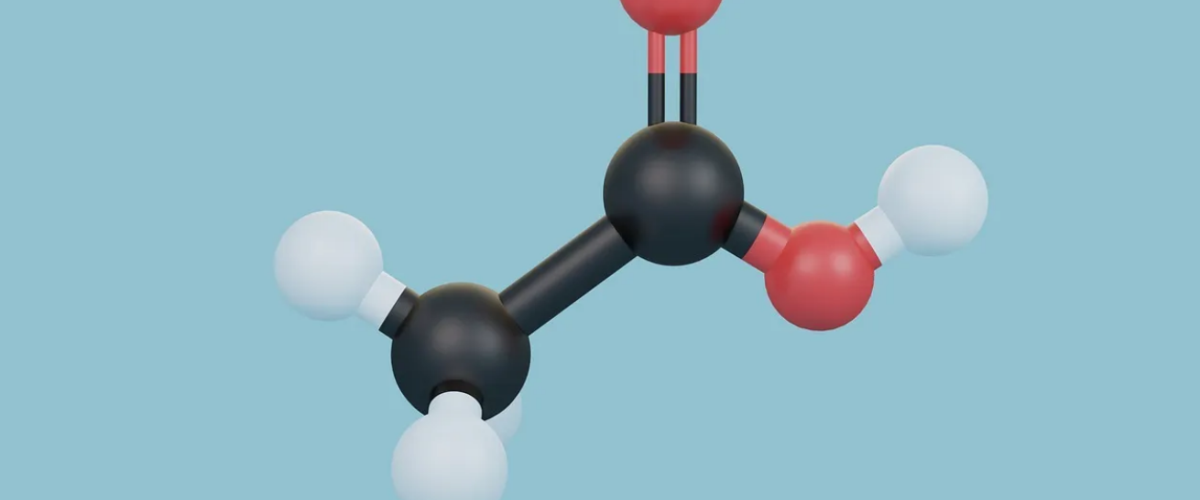In our quest for better health and overall well-being, we often encounter various compounds and molecules that play an important role in maximizing our bodies' potential. Adenosine, a naturally occurring nucleoside, is one such molecule that is receiving increasing attention for its significant health benefits. From promoting heart health to providing energy and supporting metabolism, adenosine has huge potential to strengthen our bodies from the inside out.
Adenosine is a naturally occurring compound found in nearly every cell in our body. It is an important molecule involved in various physiological processes, including energy transfer and blood flow regulation.
Adenosine, a nucleoside, is composed of a sugar molecule (ribose) and adenine, one of the four bases found in DNA and RNA. It plays a vital role in the production of adenosine triphosphate (ATP), our cells' primary energy currency. When our bodies require energy, ATP is broken down into adenosine diphosphate (ADP) and free phosphate groups, releasing energy to power various metabolic activities.
In addition to its role in energy metabolism, adenosine is also involved in signaling processes in our bodies. It acts as a neurotransmitter, a chemical messenger that carries signals between nerve cells. Adenosine has the ability to bind to specific receptors in the brain, causing a variety of effects on neural activity and affecting sleep patterns, arousal, and arousal.
In the medical field, adenosine is commonly used as a medication during cardiac stress testing. It is given into a vein to temporarily increase blood flow to the heart and cause pressure, allowing healthcare professionals to assess the heart's function. Adenosine has a short half-life and its effects are quickly reversed, making it a safe and effective tool in such diagnostic procedures.
From the energy transfer processes mediated by molecules such as AMP, ADP and ATP, to the regulatory role played by cAMP in cell signaling, adenosine remains an intricate and integral component of the complex machinery of life.
● Adenosine monophosphate (AMP): AMP is an important metabolite involved in intracellular energy transfer. By capturing energy released during cellular processes, AMPs play important roles in nucleotide biosynthesis, protein phosphorylation, and signal transduction. In addition, it is a precursor molecule for the synthesis of adenosine triphosphate (ATP), the main energy currency of living organisms.
● Adenosine diphosphate (ADP): As the next member of the adenosine family, adenosine diphosphate (ADP) plays an indispensable role in cellular energy metabolism. ATP is hydrolyzed to form ADP, releasing phosphate groups and energy required for various physiological processes. ADP serves as a precursor for AMP synthesis and can replenish intracellular ATP levels. This cycle of ATP hydrolysis to ADP and subsequent regeneration ensures a continuous supply of energy required for cellular function.
● Adenosine triphosphate (ATP): Without a doubt, adenosine triphosphate (ATP) is the best-known and most important form of adenosine. ATP serves as the universal energy currency in all living organisms, serving as an energy reservoir that fuels numerous biological processes. Whether it's muscle contraction, nerve impulse transmission, or active transport across cell membranes, ATP quickly provides energy wherever and whenever it's needed. By rapidly transferring its terminal phosphate group to a specific target, ATP provides the energy needed for cellular activities while ultimately being converted into ADP.
● Adenosine deaminase (ADA) — ADA is involved in purine metabolism, is required for nucleic acid turnover in tissues, and supports the development and maintenance of the immune system by converting toxic deoxyadenosine into lymphocytes.
● Cyclic adenosine monophosphate (cAMP): In addition to energy metabolism, we also encounter cyclic adenosine monophosphate (cAMP). This small but potent molecule is a messenger in signaling pathways, acting as a second messenger for a variety of hormones and neurotransmitters. cAMP exerts its effects by activating protein kinases, which regulate many cellular processes such as gene expression, cell proliferation, and synaptic plasticity. By regulating these fundamental activities, cAMP helps maintain cellular homeostasis and coordinate various physiological responses.
1. Enhance cardiovascular health
Adenosine has been found to have many benefits for our cardiovascular system. First, adenosine relaxes vascular smooth muscle by reducing calcium absorption and activating adenylate cyclase in smooth muscle cells. It is a potent vasodilator, which means it dilates our blood vessels, thereby increasing body fluids. blood flow. By ensuring an adequate blood supply to the heart and other organs, adenosine reduces the risk of cardiovascular diseases such as heart disease and stroke.
Additionally, adenosine has cardioprotective effects, preventing damage to heart tissue during periods of reduced blood flow. It provides important protection during a heart attack, minimizes damage to the heart muscle, and may even aid in the recovery process after a heart attack.
2. Provide energy and support metabolism
Adenosine is a molecule that plays a key role in metabolism. It is a nucleoside composed of adenine and ribose and is involved in various metabolic processes in the body.
ATP is the main molecule responsible for energy storage and transport in cells. Adenosine participates in the production of adenosine triphosphate (ATP) and is a key component of ATP. Through a series of biochemical reactions, it can be converted into ATP to provide energy for cellular processes.
In addition, adenosine is also involved in the regulation of metabolism through interactions with receptors in cells. Adenosine receptors are found in various tissues and organs, and when adenosine binds to these receptors, it regulates metabolic processes in the body.
Adenosine has been shown to inhibit the breakdown of glycogen, a storage form of glucose in the body. By inhibiting the breakdown of glycogen, adenosine helps maintain glucose homeostasis and ensures a steady supply of energy to the body.
3. Improve sleep
Adenosine plays a vital role in neurotransmission in our brains, particularly in regulating the sleep-wake cycle. It acts as a natural sedative within the central nervous system, promoting sleep and helping regulate our sleep patterns. Adenosine levels in the brain gradually increase throughout the day, promoting feelings of fatigue and sleepiness. By binding to specific receptors in the brain, adenosine helps induce and maintain deep sleep. Therefore, adequate adenosine levels are essential for good sleep quality and overall rest.
Additionally, adenosine is involved in memory formation and recall. It has been shown to enhance learning and memory consolidation, making it a potential therapeutic target for people with conditions such as Alzheimer's disease or other cognitive disorders.
4. Improve exercise performance and muscle recovery
Adenosine has been found to have a variety of effects on athletic performance, which can be highly beneficial for athletes or individuals looking to maximize their physical abilities. By increasing blood flow, adenosine ensures that muscles receive adequate oxygen and nutrients during exercise, thereby increasing endurance and delaying fatigue.
In addition, adenosine stimulates the release of nitric oxide, a vasodilator that further enhances blood flow and oxygen delivery to muscles. This increased oxygenation contributes to faster muscle recovery and reduces the risk of exercise-induced injury.
While adenosine occurs naturally in our bodies, we can further increase its levels by consuming foods that contain certain nutrients or their precursors.Let’s explore some of the best food sources to include in our diet to boost adenosine levels naturally
● Meat and Poultry: Lean beef, chicken and turkey. These meats also provide essential amino acids, and adding lean meats and poultry to your diet can help support adenosine production.
● Legumes and lentils: Legumes such as lentils, chickpeas, and kidney beans also promote ATP production and are an excellent source of plant protein. Regularly adding legumes to the diet can provide nutritional supplements while naturally increasing adenosine levels.
● Seafood: Fish species such as salmon, sardines, trout, mackerel and cod are good sources that affect adenosine levels. Additionally, seafood provides omega-3 fatty acids, which have many health benefits, making them a valuable addition to your menu.
● Whole grains: Including whole grains such as oats, brown rice, and quinoa in your diet not only provide essential fiber and nutrients, but also aid in the production of adenosine. These grains contain adenosine monophosphate (AMP), a precursor to adenosine that is converted in our bodies to ensure a steady supply of this important nucleotide.
● Green tea: Green tea is a rich source of an adenosine analog called catechin. While it may not directly provide adenosine, catechins have a similar structure that allows them to bind to and activate adenosine receptors in our bodies, promoting relaxation and overall health.
A balanced diet is important to maintain high energy levels because each macronutrient has a different effect on ATP.
ATP levels can be provided through a balanced diet because the body uses molecules in food to create ATP and energy, but for some people who eat a monotonous diet, ATP supplements are a good option.
To fully appreciate the benefits of adenosine and ATP supplements, it's important to understand their role in our body's energy production. Adenosine triphosphate (ATP) is often referred to as the cell's "energy currency." It is responsible for providing energy to every cell in our body and performing basic functions such as muscle contraction, nerve activity and metabolism. Adenosine, on the other hand, is an important neurotransmitter that regulates sleep and wakefulness.
Adenosine 5'-triphosphate disodium salt is a nucleotide used as a source of cellular energy. Composed of adenosine and three phosphate groups, it is the most critical molecule in metabolism. This compound plays a key role in cellular energy recycling and is involved in a variety of biochemical and physiological processes, such as muscle contraction and nerve impulse transmission. As an ATP supplement, it can provide energy metabolism for the human body and serve as a coenzyme within cells.
When considering adenosine and ATP supplementation, it is important to choose quality products from reputable sources. Look for supplements produced under strict quality control measures and thoroughly tested for purity and effectiveness. Consider consulting with a healthcare professional or nutritionist to determine appropriate supplement dosage and duration based on your individual needs.
Q: How does adenosine affect cardiovascular health?
A: Adenosine plays a crucial role in regulating cardiovascular health. It works as a natural vasodilator, meaning it helps to widen the blood vessels, improving blood flow and reducing blood pressure. By dilating the blood vessels, adenosine allows more oxygen and nutrients to reach the heart and other organs. This helps in maintaining overall cardiovascular health.
Q: What are the sources of adenosine in the body?
A: Adenosine is naturally occurring in the body and can be found in various sources. It is derived from adenosine triphosphate (ATP), a molecule responsible for storing and transferring energy within cells. ATP is broken down into adenosine diphosphate (ADP) and then further broken down into adenosine monophosphate (AMP). Finally, AMP is converted into adenosine. Apart from this, adenosine can also be obtained from dietary sources like certain foods and beverages.
Disclaimer: This article is for general information only and should not be construed as any medical advice. Some of the blog post information comes from the Internet and is not professional. This website is only responsible for sorting, formatting and editing articles. The purpose of conveying more information does not mean that you agree with its views or confirm the authenticity of its content. Always consult a health care professional before using any supplements or making changes to your health care regimen.
Post time: Oct-20-2023









